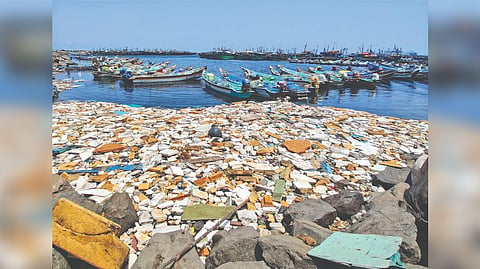

CHENNAI: Almost every weekend, individuals and NGO members flock to the beach carrying garbage bags to collect the waste strewn there to help reduce the amount of waste that gets into the ocean.
However, the ocean remains polluted and thousands of turtles and other marine animals die each year after ingesting plastic or getting entangled in it.
Pointing this out ahead of International Coastal Clean-up Day that falls on September 17, experts say it should not be reduced to a one-day event. What is needed is to make it a regular activity, and more importantly, empower citizens to take an active role in ocean conservation.
This needs wider attention and not just the beaches. For instance, waste dumped on the road margins gets washed away during intense rainfall, travel through the storm water drains to reach the rivers, from where the garbage reaches the sea. That is, whatever we do in the land area is reflected in the ocean, too, say experts.
“It is a perennial issue due to poor solid waste management. It should be addressed scientifically and practically,” said Darwin Annadurai, an environmental activist. The government should take stern steps to ensure source segregation of waste, which is essential to recycle them that in turn would reduce waste generation, he said.
The level of ocean pollution has gone up substantially in the last decade, despite initiatives by the government and NGOs to clean beaches. Unless the people act responsibly, marine pollution is only going to worsen in the future, he cautioned.
Gowtham of Walk for Plastic said plastics waste generation has doubled after Covid. When the organisation was formed, its volunteers used to collect about a kilo of plastic per km on the seashore. Now, it has increased to nearly two kg in the urban areas.
“If this trend continues, it won’t be long before we face disastrous outcomes for our environment,” he said.
Coastal pollution severely impacts marine animals. This includes microplastics, detergents and cosmetics that are washed into the ocean through streams and rivers. Even farming-related chemicals like pesticides and fertilizers get into the sea, he said.
“When we release the baby turtles during hatching season, we wonder how they would survive in the polluted ocean because whatever they swallow could be microplastic or pollutant instead of vegetation that they are supposed to eat,” rued a marine expert.
Visit news.dtnext.in to explore our interactive epaper!
Download the DT Next app for more exciting features!
Click here for iOS
Click here for Android